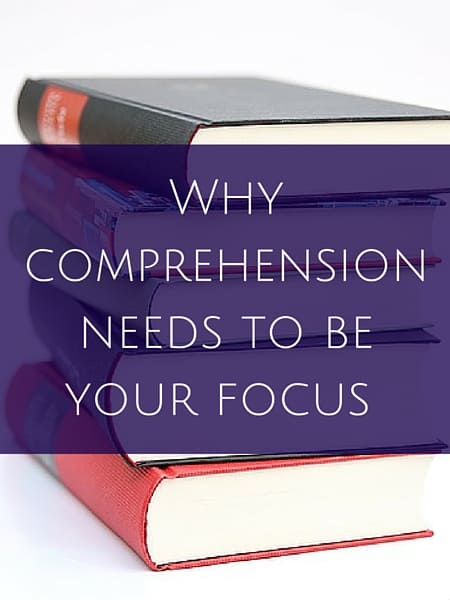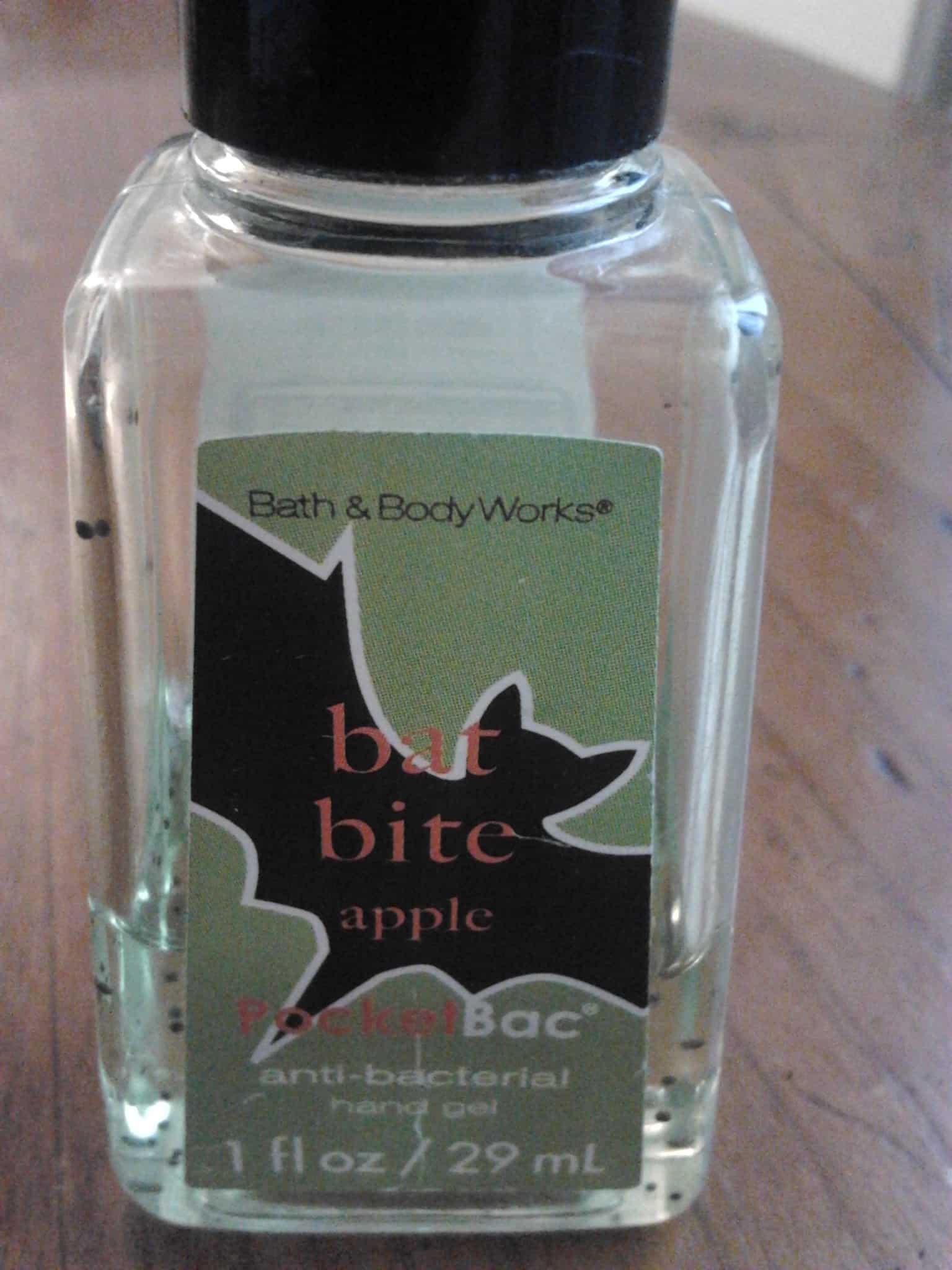If you move to France and aren’t great at French, the French language will be one of the biggest hurdles you’ll face — especially if you live in an area where people don’t know English. If your skills are a little rusty or non-existent, you’ll go from frustrated, to lost, to confused, to homesick and back again just about all the time. But don’t fret! You’ll get better. I’m living proof. When I first came to France to live in 2009, my French was at an intermediate level from taking it in high school and at the Alliance Francaise and I thought I was OK. I got a major wake-up call when I arrived and realized spoken French in real life is way harder than I thought. I’ve made major improvements since then, but I still have instances when I don’t understand in French.
So what do I do when I get myself in a pickle and I do not understand French?
Read on!
Am I fluent in the French language? No.
My level of French is advanced, but I consider myself far from fluent. Why? Well, I’ve been here since Christmas (was here in 2009 but returned to the U.S. after my work contract was up) and my life consists of talking with Tom and his family and small talk with shop keepers. I live in an apartment building full of retired people (not exactly the type to invite out on Saturday night) and work in English all day. So between the lack of friends and my job, I’m a tad isolated. Oh and did I mention Tom is disgustingly fluent in English?
My level of French is actually quite good although I beat myself up about it just about daily. I’m perfectly capable of interacting in any social situation and getting my point across. I can go to any store, office, agency and take care of whatever needs to be done. I can talk about my ideas and dreams and recount what happened yesterday at an advanced level.
Sure, I make mistakes, but my level at this point is advanced. What do I need to do to bridge the barrier to fluency? Well, I’d have to watch a lot more TV, find some friends and MAKE TOM SPEAK ONLY IN FRENCH. But I digress…
So while I understand 95% of what’s going on, there are some exceptions to this when I don’t understand in French:
- Accents: Foreign, regional, whatever. If you have a heavy accent, I’ll be lost.
- Mumblers (old people): I dread elevator conversations with the over 70 crowd in my building. I don’t know if it’s due to the lack of dentures that fit or what, but all the senior citizens here seem to mumble, look down when they’re talking and use weird phrasing/expressions that just leave me lost. Some even do all three of these things at the same time to make our conversations extra amusing — for me. Not for them.
- Complicated subject matter: Literary discussions with lots of figurative, complicated ideas and expressions I don’t know. Anything detailed on French policies I leave to Tom. Like specific healthcare reimbursement questions or income tax inquiries.
- TV: Sometimes it’s just too fast with too much slang. And people talking over each other is the worst. Shows like Law & Order? Forget it. Wayyy too complex.
19 Things that are true when you have a foreign accent >>
Not understanding what was said isn’t particularly embarrassing if you’re just a tourist passing through. The French almost expect dictionary wielding tourists to be lost and will help you out when they can. But when you live here and don’t understand? Well, that’s just the worst feeling. And trust me, it used to happen a lot!
If it’s just something on TV, something said by your mother-in-law or during a one on one conversation in a shop, it’s not that bad. Yes, it can be a little nerve-wracking when I don’t understand in French, but not understanding is the WORST when you’re in a group or are being singled out to talk in a crowded line at the bakery or some other social situation.
So what do I do when I don’t understand France?:
- OPTION 1: My first instinct is to say a simple “Sorry?” or “Can you please repeat what you said?” (in French of course). The person always repeats what they’ve said and at this point there are two options:
1) Success. You’ve understood the second time around. This is the preferable option and a major relief.
2) Failure. You can ask them to repeat it again. Hopefully on the second repeat they rephrase or speak more slowly (not always the case) and you understand. I mean come on, you hear my accent. Help a girl out!
Diane in 2009: On that second repeat I’d just say “Sorry can you please repeat what you just said?” still panicking and nervous.
Diane in 2010: On that second repeat, I’d make an excuse to explain my lack of comprehension and say “Sorry I am deaf. Hear the accent? Could you please repeat yourself?” And you think I’m joking.
Diane now: On that second repeat (thank God this happens rarely), I say something more natural like “Forgive me. I feel like a moron but I have absolutely no clue what you just said.” And laugh. At this point, the person sees I can clearly speak French and will say it a different way. Every time I’ve done this, the person seems to feel for me and I almost always learn a new word or expression.
But at this point, if you’re like Diane in 2010 and you still haven’t understood, you feel like a moron and can either run away and hide for the rest of your life or just smile and nod.
- OPTION 2: The smile and nod. This works most of the time even if the answer is wrong. This is a great one for when you don’t know the person and are sure you won’t see him or her again.
Example of this working: “Do you want your receipt in the bag?” Smile and nod. No harm done.
Example of this working, but as the wrong answer: “Does this train go to Dijon?” You have no idea if the train goes to Dijon nor do you know what was said. Smile and nod…
Example of this failing miserably: The smile and nod won’t work if someone asks you “Are you some kind of moron?” Yes. Yes, I am. Smile and nod…
The one thing I have going for me is my accent. While I do have one, it’s not a dead giveaway that I’m American since I can pronounce the French “r.” I’ve been told my accent is “good” and doesn’t interfere with comprehension or getting my point across. So great, at least when I make a moron out of myself, I can be understood while doing so. 😉
Here are some examples of my brilliant French language skills at work:
By brilliant I mean totally embarrassing:
- At puppy school, we were checking in and the employee asked me what instructor led our group. I didn’t know our instructor’s name, so I meant to say the bald man, which is chauve in French. Une chauve-souris is a bat. It’s simple really, souris is a mouse. So bald mouse. Makes sense? Well, genius me made the mistake of saying “Our instructor is that bat man.” I said chauve-souris instead of just chauve. Why? Beats me. And that was an easy one! The guy I was talking to was too polite to correct me. Hopefully he got what I meant.
- Don’t confuse baisser and baiser. The first means “to lower” as in lower the volume or lower something onto the ground. The second is vulgar and means something that starts with “f” and rhymes with duck. The “s” sound in baisser is pronounced like an “s” but in baiser, the single “s” is pronounced like a “z.” Don’t forget that.
An actual instance of good French was in 2009 a month after I arrived. It was 2 a.m. and Tom, his brother and I were in Angers, France coming home from a friend’s party. I hadn’t had a sip to drink, so I took it upon myself to drive home.
At a red light, I decided to make a right turn on red. Being from New Jersey where this is legal combined with the fact that I was dead tired, I didn’t even think twice before turning right. Out of nowhere, two motor scooter cops emerged from the darkness behind me and started flashing enough lights to light up Yankee Stadium.
I was shaking as I pulled over, but trust me when I say my French language skills have never been more focused than they were at that moment. I answered the officers’ questions with ease and was so tuned in that I wondered if I’d had divine intervention. I didn’t even have my passport OR license on me and managed to escape without a ticket or a stint in jail.
In retrospect, I think the amount of paperwork required to actually issue a ticket to someone without an ID on them was more work than these two chaps wanted to do. So a simple breathalyzer test and a stern talking to got me out of that one. Phew! Lesson learned: Carry ID at all times.
***
Have any French language problems of your own to share? What do you do when you don’t understand in French?







Not knowing much French, I found this post really funny — almost as funny as your elderly neighbors would find it if I lived there for a while. I’d probably cause some international scandal the minute I opened my mouth. I can do that in English, too ;-).
Having a visual of your experiences made me laugh! Being an American as well, and very little command of the French language, I found if I tried to speak the language, the shopkeepers or restaurant personnel were very happy to help and never made me feel stupid. They seemed pleased I made the attempt and didn’t act like the stereotypical “ugly American”. It actually was fun and an adventure when entering a boulangerie in the early morning hours to make sure I ordered what I truly wanted.
I had to laugh out loud over the “bat man” story. I have had moments with language barriers, specifically Italian. I majored in Italian and lived in Italy for over a year. I used to watch Italian soap-operas with my host mom for hours on end. I had no idea what they were saying half the time and my host mom didn’t know a word of English so the drama was interesting to say the least.
I’m not sure how I’m going to do in France at this point! I’ll be in Paris while I’m studying abroad, and I’ve taken French classes for the past six years, so I think I should be alright. I’m pretty sure my reaction to not hearing something and asking to have someone repeat it would be pretty similar to you as you are now, though. 🙂 Maybe there’s hope for me!
I love this post, it’s really funny ! It looks like my own experience in Melbourne as French expat: don’t understand old people who mumble (yesterday at the bank, in the queue, an old woman tried to have a conversation with me: I didn’t understand anything and didn’t want to upset her so I said “hum hum” “yes” “absolutely” haha). I live with an Indian man and his Chinese wife so I often ask for them to repeat what they say 🙂 Oh another thing I noticed is about tone of humour, you can’t be cheeky with foreigners like you are with your compatriots or sometimes it seems disrespectful because of cultural differences.
A contributor on the webcommunity MyFrenchLife has just written an article about “Don’t ask people to correct your French” and this woman explains if you ask people to correct your mistakes, you will lose your self-confidence. So don’t be afraid about mistakes, like me, just speak 😉
http://myfrenchlife.org/2012/07/17/dont-ask-ask-people-to-correct-your-french/
Thank you! And thanks for sharing your experience. The old people are the worst! And I couldn’t imagine old/aussie slang/mumbling all together. Just too difficult! I’m a native English speaker and I prob wouldn’t understand!!
Funny! Especially bat man! But also very informative and encouraging. I can’t wait to appear moronic when I move to France 😉
Your article about french language is informative. Thanks for sharing this nice post.
Glad you liked it! Thanks for stopping by!
Funny post! Bat Man might be taken as a compliment here in superhero-obsessed USA. While I took my HS and university French courses in the US, I became fluent in French in west Africa, where the accent is totally different from France and they speak extremely slow and enunciate pretty clearly for the most part. When I did travel to France in 2010, I had serious problems understanding the French who speak VITE VITE VITE! I’ve never said “Encore une fois SVP?” more in my life! Thanks for a great post!
Haha yes, the different accents and dialects will definitely throw you. Sometimes I can’t understand people from the South of France. It all takes some getting used to. Glad you enjoyed the post!
In 4th grade I joined our school’s French club. Loved the language, and it came fairly easily to me. I kept with it over the years, al the way through junior college, though I found it a little more difficult. That’s because I didn’t pay attention in my English classes to the parts of speech and grammar portions. After all, who needs to know what a past participle or pluperfect is, so long as you can structure your sentences correctly? So, later on in my studies it became a bit of a challenge in learning advanced French. What’s a subjunctive? Why can’t they teach languages the way we learn them naturally – by speaking them? At any rate, fast-forward through 14 years of study in the language. Maybe 10 years after that, I worked in retail. I live in Florida, USA, and we frequently get visitors from Canada and France, as well as other European countries.
Now I’m also a word fiend. I used to read the etymologies of words in the dictionaries, so whenever we got a foreign-language speaking person in my department, I got to serve them because I had a chance of understanding them. But you know how it is, if you don’t use it you lose it, and it had been years since I’d actually used my skills.
One day my co-worker was serving a lady while I finished up a transaction with someone else. Seeing that he was having a great deal of difficulty, I traded places with him to work with her. She was lovely, very patient about my questions. She was paying by check, which required identification and personal information to complete our requirements. Periodically she would repeat a phrase that included a word that I knew I’d heard before but the meaning escaped me at the time. Each time she said it, I’d raised my head and smiled and spoke directly to her, and went back to filling in our form. We were able to complete her transaction and she left the store happy, which pleased me. It wasn’t until several days later that I remembered what that elusive word meant – the woman was deaf, and had been lip-reading my fractured French!
Oh wow, what a story! It’s funny how the skills come right back. Did that inspire you to start practicing French again regularly? Thank you for commenting!
Hello There,
Yes to respond to your question I do leave in france. I am actually french, and had the chance to leave as an expatriate in several countries during some years.
And I do speak some languages, with more or less skill. French being probably the best, and English the second, but far from French.
And this is where I reach your meaning about being fluent. I am regularly asked whether I am fluent in one or another of the languages I practice every days.
Response is “no”.
Are you fluent when you can speak in fron tof people of ALL topics? Including medical, economical, political, religious precise maters? Are you fluent when you can speak in emergency condition over a bad quality radio of telephone line? Are you fluent when you can work with people and write letters to them, or write and treat contracts, or negotiate millions on legal or taxe issues? Are you fluent when you can ear radio news and understand everything of this very concentrated synthetic vomit of words on unexpected topics? are you fluent when you can ear and understand songs? Poems?
Am I even fluent in French? For the point about songs and poems, my response is “no”, still.
There is large steps between being easy in converstaion, able to work, capable to create documents for professional use, fluent, high educated, double or multiple cultural.
Some true double cultural higly educated children are impressive when understanding references on cultural knowledge. Earing a song in one language and immediatly identifying that it is a popular schoolarship song, or cartoon opening music. But even them, feel not alway fully at ease with the languages.
So rejoice: your feeling is one of the most widespread in communication world.
Fluency is a never-ending process. You can always learn more, read more, do more, practice more… For me, when I can conjugate irregular verbs in hard to master tenses in about 1 second and not hesitate, then I think I’ll say I’m fluent in French. Until then, gonna keep trying to get there…
I’m just so impressed when you guys make the effort of speaking French. Honestly, this language isn’t the easiest, and more and more French people do speak English. So, well done !
I’ve lived the same thing but with English. I’ve studied English in college, I read it fluently, but I still have this terrible, terrible French accent. I don’t know why, but sometimes, even on the easiest things (recently, when I asked for tap water in a restaurant…), I’m not understood at all. Whereas most of the times, I’m perfectly understood… Weird.
OMG, I laughted so hard while reading your post!! First about “So what do I do when I don’t understand?:” Of course, I know so well this feeling of embarrassment when I do not understand what my teachers are talking to me for instance! I am taking Paralegal course and when my teacher who is a lawyer… and talk like a lawyer…and ask me questions; so “I’m like a hen would have found a knife”. Imagine a second how I might look like! Also, when I try to talk to someone with my very strong French accent and when people start to frown trying to understand what I am talking about, so this, it not a good sign at all to me! I feel so dumb, even stupid. So yup, I know this terrible feeling,haha. Secondly, the part you mentioned about the difference between “baisser and baiser”, made me remember a funny story that I had with my best friend. My best friend is an American speaking French and was married to a French man (they are divorcing). My friend was relating to me her story with a “future ex-husband” and when moment she told me in French: Eric a voulu me baiser et j’ai pas voulu”. At the time, I was very surprised that my friend speaks so vulgarly, not that I was shocked (I’m French, and I happen to be a little vulgar in my time), but just the fact my friend, American, so so prudish woman uses this term, I bursting out laughing! Anyway, I wanted to know more, to know in what direction she wanted to use that word. In fact she just wanted to say that Eric just wanted to kiss her.
Finally, I felt less alone when I say stupid things when I speak English!
hahahah, love that Christine. See, we aren’t alone in this language mess. It’s funny now when I make mistakes but when my French was really terrible the mistakes were so commonplace it was just sad but now I speak naturally (with mistakes of course) so when I make a whopper of a mistake it’s funny. Loved your stories! I hope you taught your friend the verb embrasser after that little conversation. 😉 Would love to have you participate in my expat care package exchange. Check out the post before this one if you’re interested. And good luck in your paralegal course. Thanks for taking the time to comment!
I once said to a group of (French) friends: “Allons chercher un canard” I meant to say “canapé” (couch) and was basically the laughing stock for saying that we should go find a duck! 😉
Great ost, I much enjoyed it and thanks! Now for a story.
Il y a une fois … 2014 quand je roulais mon vélo toute seule de Paris à Nice. J’étais à Autun, assez près de Paris.. and here I switch to English, when I was doored. That is a bicyclists word for what happens when a car driver opens their door… and crashes the rider. Me, in this case I wasn’t hurt, the driver was so solicitous and as rattled as I was, a woman saw the accident from her apartment and came to the street to check on me and offer me tea. Miracle of miracles, my mediocre French didn’t desert me and I could be understood. Everyone forgave toutes mes fautes!
Thank goodness you were OK! I feel like sometimes in a high-pressure situation that could be really serious, the French just flows. It’s a matter of being understood and there’s no time to second-guess yourself or get self-conscious. Of course, I’d rather have crappy French than have great French with a cycling injury! Happy to hear everyone helped you and that you weren’t seriously injured. Thanks for sharing 😉
Thanks Diane for the great laughs as I know I am also laughing at myself because what will occur for me learning the french language when I get to France. It sure will fun and interesting.
I’d been living in France for a few years when my sister came to visit and we went to St. Tropez for a day of fun. At a bar, my sister asked me how to ask where the toilettes are and set off to find them. She came back puzzled , wondering why when she asked for les toilettes the waiter gave her a pack of cigarettes! And another time ( at our own restaurant ), a customer asked her for a ” cendrier ” ( ashtray )And she came to me asking why they wanted a ” sanglier ” ( wild boar ). So much fun to be had with this language! I’ve now been here for 23 years and am also told my accent is “good”, which is high praise indeed from the locals.
My favorite story about the danger of smiling and nodding in agreement when you don’t understand French, was told by my supervisor at the Mayo Clinic. He had been a resident at the Montreal Neurologic Institute and he used to chat in French with the elevator operator (Shows how old this story is…) One day the little old Quebecoise said something which he didn’t quite understand and he replied, “Oui, merci.” Everyone in the elevator started laughing. When he got off, he asked his colleague why everyone was laughing. He was was told that the nice old lady had said to him in French, “You’re French is improving. You must be sleeping with a French girl.” And of course, he had replied, yes, thank you.